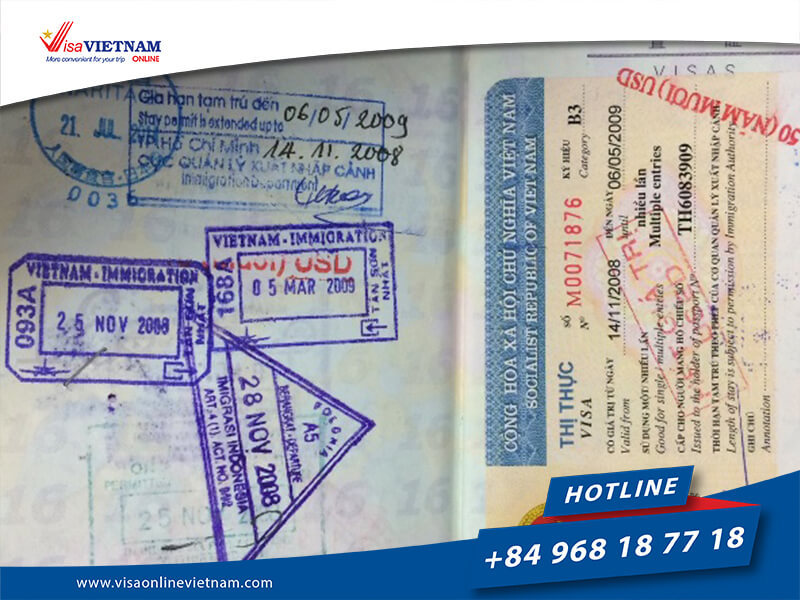
An overview of the Vietnam visa requirements for Yugoslav citizens, including information on types of visas available, application process, required documents, and cost/processing time. Also includes details on entry/exit requirements, tips for obtaining a visa, visa on arrival option, and visa extension/renewal options in Vietnam. FAQs about Vietnam visas for Yugoslavian travelers.
Overview of Vietnam visa requirements for Yugoslav citizens

Sorry for any confusion. Here’s an overview of Vietnam visa requirements for citizens of Yugoslavia:
Citizens of Yugoslavia need a visa to enter Vietnam. They can apply for either a tourist visa or a business visa. The tourist visa allows them to stay in Vietnam for up to 30 days, while the business visa allows them to stay for up to 12 months.
To obtain a visa, Yugoslav citizens need to submit an online application or visit the nearest Vietnamese embassy or consulate. They will need to provide their passport, a passport-sized photo, and pay the visa fee.
Additionally, Yugoslav citizens may be required to provide proof of onward travel, such as a return ticket, and proof of sufficient funds to cover their stay in Vietnam.
It’s important for Yugoslav citizens to check the latest visa requirements and regulations before traveling to Vietnam, as they are subject to change.
Types of visas available for Yugoslavians traveling to Vietnam

There are several types of visas available for Yugoslavians traveling to Vietnam, including:
- Tourist visa: This allows travelers to enter Vietnam for tourism purposes and is valid for up to 30 days.
- Business visa: This allows travelers to enter Vietnam for business purposes such as attending meetings, conferences or conducting trade activities and is valid for up to one year with multiple entries.
- Transit visa: This allows travelers to stay in Vietnam for a maximum of 5 days while waiting for a connecting flight to another country.
- Work permit: This allows travelers to work legally in Vietnam for up to 2 years.
Yugoslavians can apply for these visas through the Vietnamese embassy or consulate in their home country or online through authorized agencies. The required documents and processing time may vary depending on the type of visa applied for.
How to apply for a Vietnam visa from Yugoslavia
To apply for a Vietnam visa from Yugoslavia, you can follow these steps:
- Determine the type of visa you need and the duration of your stay in Vietnam.
- Gather all necessary documents such as passport, photos, application form, and proof of travel arrangements.
- Submit your application and supporting documents to the Vietnam embassy or consulate in Serbia (the nearest location to Yugoslavia).
- Pay the visa fee and wait for the processing time, which may take several business days.
It is recommended to apply for a Vietnam visa well in advance of your planned travel date to ensure enough time for processing. Additionally, it is important to note that visa requirements and processes may change, so it’s best to check with the Vietnam embassy or consulate for the most up-to-date information before applying.
Documents required for a Vietnamese visa application
The documents required for a Vietnamese visa application may vary depending on the type of visa one is applying for and the applicant’s country of origin. However, some common documents include a valid passport with at least six months’ validity remaining, a completed visa application form, passport-sized photos, proof of travel arrangements (such as flight tickets), and proof of financial means to support oneself during their stay in Vietnam. Additionally, some types of visas may require additional documents such as invitation letters, business registration certificates, or criminal background checks. It is recommended to check with the Vietnamese embassy or consulate in one’s country for specific requirements.
Cost and processing time for Vietnam visas for Yugoslavs
As of my knowledge cutoff date of September 2021, Yugoslavs were no longer considered as a nationality or citizenship due to the breakup of Yugoslavia. However, assuming that you are referring to citizens of Serbia, Montenegro, or North Macedonia as they were part of Yugoslavia, the cost and processing time for Vietnam visas may vary depending on the type of visa and the embassy/consulate where the application is submitted. It is recommended to consult the website of the Vietnamese embassy/consulate in your country or contact them directly for up-to-date information on visa requirements, fees, and processing times.
Entry and exit requirements for Yugoslavian travelers to Vietnam
As of my knowledge cutoff date (September 1, 2021), Yugoslavia no longer exists as a country. It was dissolved in the early 1990s and its successor states are Bosnia and Herzegovina, Croatia, Kosovo, Montenegro, North Macedonia, Serbia, and Slovenia. Therefore, there are no entry and exit requirements for Yugoslavian travelers to Vietnam because Yugoslavia is not a recognized state anymore.
For travelers from any of the successor states of Yugoslavia, entry into Vietnam requires a valid passport and a visa. Visa exemptions are available for nationals of certain countries for short stays, but this does not apply to any of the successor states of Yugoslavia. Travelers should check with the Embassy or Consulate of Vietnam in their respective countries for specific information on visa requirements and procedures.
Additionally, due to the ongoing COVID-19 pandemic, Vietnam has implemented various measures to restrict travel and prevent the spread of the virus. The situation is constantly changing, so it is important for travelers to stay up-to-date on the latest entry and exit requirements and restrictions before planning their trip.
Tips for obtaining a Vietnam visa as a Yugoslav citizen
As a Yugoslav citizen, you can obtain a Vietnam visa by following these tips:
- Determine the type of visa you need: Vietnam offers various types of visas, including tourist, business, and transit visas. Ensure that you apply for the correct visa type that suits your travel purpose.
- Check for visa exemption: Vietnam has a visa exemption policy for some countries. Check if Yugoslavia is one of them. If not, proceed with the application process.
- Choose the appropriate visa application method: You can apply for a Vietnam visa either through the embassy or consulate of Vietnam in Yugoslavia or online via the Vietnam Immigration Department website.
- Prepare necessary documents: You will need to prepare documents such as your passport, application form, photo, and payment for the visa fee.
- Submit your application: Submit your application to the appropriate office, whether it’s the Vietnamese embassy/consulate or online.
- Wait for processing: The processing time may vary depending on the type of visa you applied for and the method of application. Plan accordingly and allow enough time for processing.
- Collect your visa: Once your visa application is approved, collect your visa from the embassy/consulate or download it online if you applied online.
Note: It’s always best to check with the relevant authorities for updated information regarding visa requirements and application procedures.
Vietnam visa on arrival option for Yugoslavians
Yugoslavian nationals can apply for a Vietnam visa on arrival option, which allows them to obtain a visa at the airport upon arrival in Vietnam. This option requires applicants to first obtain an approval letter from a Vietnamese travel agency or visa processing company. Once the approval letter is obtained, Yugoslavian travelers can present it along with their passport and a completed visa application form to the immigration officer upon arrival in Vietnam. The visa on arrival option is only available for air travelers and is not applicable for those entering Vietnam by land or sea.
Visa extension and renewal options for Yugoslavian travelers in Vietnam
Yugoslavian travelers in Vietnam can extend their visa or renew it if they wish to stay longer. They can apply for an extension at the Immigration Department before their current visa expires. The extension period varies depending on the type of visa. Alternatively, they can leave the country and re-enter with a new visa. Visitors from Yugoslavia may also be eligible for visa exemptions or visa-free entry, depending on the duration and purpose of their stay. It is recommended to check with the embassy or consulate for the latest information and regulations.
Frequently asked questions about Vietnam visas for Yugoslavians
Q: Do Yugoslavian citizens need a visa to enter Vietnam? A: Yes, Yugoslavian citizens need a visa to enter Vietnam.
Q: What types of visas are available for Yugoslavian citizens to travel to Vietnam? A: Vietnamese tourist and business visas are available for Yugoslavian citizens.
Q: Can Yugoslavian citizens apply for a visa on arrival in Vietnam? A: No, Yugoslavian citizens cannot apply for a visa on arrival in Vietnam. They must obtain a visa prior to arrival through the embassy or consulate.
Q: What is the validity of a Vietnamese visa for Yugoslavian citizens? A: The validity of a Vietnamese visa for Yugoslavian citizens depends on the type of visa applied for. Tourist visas are typically valid for one month, while business visas can be valid for up to six months.
Q: How long does it take for Yugoslavian citizens to obtain a Vietnamese visa? A: It takes approximately five working days for Yugoslavian citizens to obtain a Vietnamese visa through the embassy or consulate.
Q: What documents are required for Yugoslavian citizens to apply for a Vietnamese visa? A: Yugoslavian citizens need to submit their passport (which should be valid for at least six months), two passport-sized photos, and a completed visa application form with their signature. Additionally, they may need to provide proof of travel arrangements and/or a letter of invitation from a host in Vietnam (for business visas).
Leave a Reply